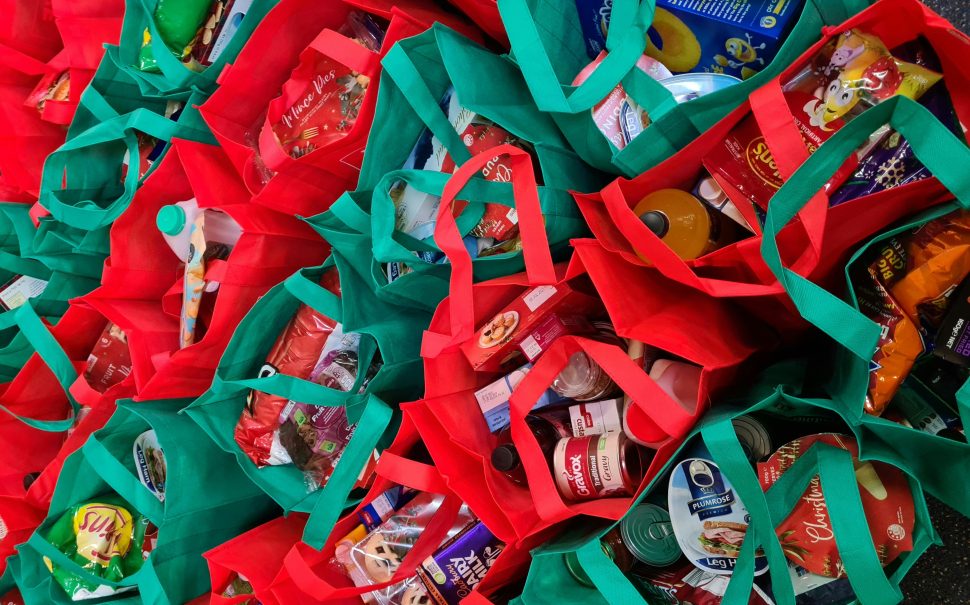Anti-poverty charity Trussell gave out 3.9% more parcels in Greater Manchester between April and September in 2024 compared to 2023 – despite nationwide figures dropping by 4%.
Trussell released its latest mid-year statistics on 20th November, which show the number of emergency food parcels distributed across their networks since 2018 within the six-month period from 1 April to 30 September.
The charity releases full-year statistics in April, but the mid-year data provides an up-to-date snapshot of food bank usage within this period.
This data revealed that regionally, the North West saw a 4% drop in Trussell food bank usage since 2023, which is the same as the nationwide statistic for the UK.
However, the nine local authorities in Greater Manchester with Trussell food banks (Bury being the exception) have seen a 3.9% rise in the number of food parcels distributed overall.
Numbers rose from 77,248 food parcels in 2023 to 80,254 in 2024, with Rochdale seeing the biggest percentage increase (around 13.5%).
Most areas have seen a drastic rise in food bank usage since 2018, and numbers spiked during the Covid-19 pandemic.
Despite an initial decline after 2020 in many areas (including Manchester, Oldham and Trafford), numbers have been steadily rising again since 2021, and are now higher in most authorities than they were during lockdown.
In fact, April-to-September food parcel distribution has more than doubled across Greater Manchester, from 35,032 in 2018 to 80,254 in 2024 – an increase of 129%.
This is likely due to factors such as the cost of living crisis, the ongoing effects of Brexit, and international conflict impacting trade and the economy.
Salford’s food bank manager, Emma Rapley, said: “Sometimes, people walk through those doors who you assume are bringing a donation in, rather than coming for themselves – but you just don’t know what people are going through.
“It can be people who’ve worked their whole lives, but maybe they’ve become a single parent or a carer, or they’ve become too ill to work and they’re not receiving the right support.”
In an effort to reduce long-term need, many food banks are no longer just providing food, as Rapley explained.
The ‘More than Food’ initiative taking place across Salford’s seven food banks is a collaboration with Citizens Advice Salford, which provides drop-in sessions for people to receive advice about housing, benefits and getting back into work.
People can come in for refreshments and a friendly chat, and volunteers also put together toiletries and other necessary household goods to give out alongside the food parcels.
Rapley continued: “Often, it’s just that support network we find that people need – they don’t have family or friends to fall back on, or they’re too embarrassed or shy to ask.”
Volunteers put together an average of 240 food parcels every week, and those food parcels feed a family for three days.
For example, each food parcel contains two tins of soup – so each week, they need almost 500 cans.
Alarmingly, many of these food parcels are going towards feeding children, too.
This is why Trussell is calling on the public to continue to play their part as we go into 2025 – particularly during the harsh winter months – and support their local food banks to meet this urgent need, by volunteering, donating, fundraising and campaigning to help end hunger in the UK.
Why the numbers are continuing to rise in Greater Manchester specifically remains unknown – and this doesn’t include people turning to other charities and food banks for support, so the bigger picture could be even more concerning.
The 4% drop in the regional and national average could reflect income boosts and the cost of living beginning to stabilise, but it’s likely to be a long time before the numbers resemble their pre-pandemic figures.
Emma Revie, chief executive of Trussell, said: “The sheer numbers of people still facing hunger and hardship across the UK is heartbreaking.
“The UK Government was elected with a manifesto pledge to end the need for emergency food and the time to act is now.
“There have been promising steps, but we need a clearer plan with more decisive action to invest in our social security system, if we are to end hunger once and for all.”
Trussell says that while food banks are a last resort for people who’ve been left isolated, facing hunger, and without enough money to live on, many are at breaking point due to years of growing numbers of people forced through their doors.
Featured image courtesy of Nico Smit on Unsplash, free to use under the Unsplash licence.




